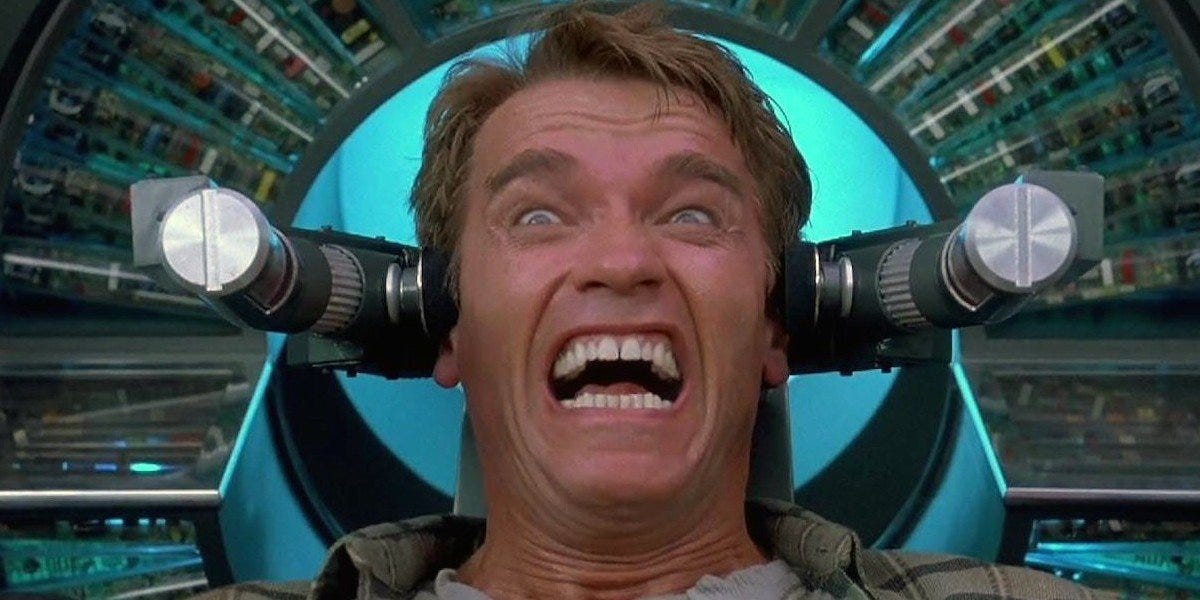Coke and a real smile.
“You cannot eat a recipe.”—Shogaku Shunryu, Roshi
I used to talk about the Coca-Cola campaign of “Open Happiness” (2009-2015) as an example of advertising selling something that we think is real but isn’t quite - a metaphor at best. If sugar water is happiness, we’re in bad spot.
Fast cars = more dates, Calgon = vacation, Coke = happiness.
But I wonder. Does it matter if it’s not real (or the Real Thing)? Can fizzy bubble nostalgia be real? Even if it we accept that is not likely to be accurate, can it still be real? Part of this is culturally or at least literarily relevant thanks to Israeli medieval historian Yuval Noah Harari’s NEXUS where among other things he discusses the fact that information is pervasive and cheap while the truth (real) is rare and expensive. Reality is rare and expensive in a world of deep fakes and artificial everything (I’m often pulled back into the prescient perspective of Next Nature). But what of nostalgia or memory - that legendary Don Draper pixie dust of the specific weight of an Iphone, implanted Disney memories, and an imagined American pastoral past of happy cows and free-range chickens that adorn our food labels to assuage any remnants of guilt? Are those nostalgic senses authentic? Can they ever be?
Can memory even be authenticated? Or, as in Total Recall, should we always be suspicious of not only our memories but our now-state as well?
It doesn’t matter I guess, we can’t live like that and advertisers know it so they ring the bell and we drool.
But there is a difference when a company is trying to BE authentic, or trying to make Real the Norm. I love the idea of Reality being the commodity instead of a precious metal. And that’s basically the business thesis of Norm seen through the onion of environmental and social justice.
Anyway, I’m reminded of an authenticity Audit we did for a midwestern regional bank that had a very public HR recruitment campaign highlighting their LGBTQ-friendly culture. During the Norm Audit (an approach we devised to find the gap between what companies do vs. what they say to expose risks and opportunities) we discovered an unhidden annual donation to the Boy Scouts. This was back when the Scouts were anything but accepting of their Scoutmaster’s gender and sexuality choices (don’t get me started). We exposed a risk in the open that could have backfired on their culture - a real viper pit issue too.
The wise leadership read our report and used it as a moment to anchor their authenticity in their corporate culture. They acknowledged the legacy donation (from a former CEO), and pledged to move that donation to local LGBTQ ally organizations until such time when the Boy Scouts changed their policy. (And when the Scouts finally modernized, the donation was reinstated along with the local LGBTQ organizations.)
The friction that was avoided by their approach is why we look for these noble distractions from authenticity. Friction is why we think authenticity is important. Imagine playing the game of business on a frictionless surface. At best, companies end up in a flow state like an athlete when Authenticity is made normal. Effortless progress. Right decisions are obvious, resources are not competed over, priorities are a memorized hymnal. It’s delicate but rewarding.
Of course, the old Bill Cosby joke is true of Authenticity as well.
I said to a guy, "Tell me, what is it about cocaine that makes it so wonderful," and he said, "Because it intensifies your personality." I said, "Yes, but what if you're an asshole?"



